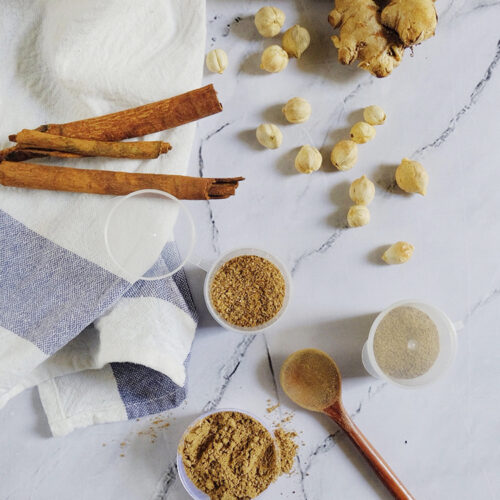September is PCOS Awareness Month! Normally, I would love to write about the cleaning routine on the first day of the month. But, having PCOS myself, this is something near and dear to my heart, so I’ll be sharing a little bit about PCOS throughout the month to help raise more awareness about the disease, its symptoms, and its effect on the woman who has it.
Polycystic Ovary Syndrome or PCOS is still misunderstood by many people and even the medical community. I have met plenty of doctors in Asia who claimed they can cure PCOS when the fact that PCOS is incurable. It is only controllable by changing our lifestyle. Many women have been undiagnosed for years and it is estimated that 1 of every 10 women has it.

At 21, I was diagnosed with PCOS. When the doctor told me about PCOS, I have no idea what he was talking about. None of my family and friends know about this syndrome or even heard of it.
In that time prior to my diagnosis, I didn’t get my period for over 8 months. Bad skin with acne all over my face; especially on the cheeks and jawline area, hair loss, and gained 16 kilos within 3 months. I was clueless!
The doctor told me that PCOS is a genetic condition. But it can also be a sudden lifestyle change. At first, I thought that could be the reason because moving from Jakarta to Melbourne has definitely changed my diet. Later in the future, I found out that 4 relatives from both sides of my family also suffer from PCOS.
Here are the symptoms and signs of PCOS:
- Irregular periods
- No period (amenorrhoea)
- Infrequent or absence of ovulation
- Excessive growth of hair on face and body (hirsutism)
- Overweight or obese
- Hair loss
- Acne
- Infertility
Ultimately, to be diagnosed with PCOS, a woman must identify with TWO of the following:
- Infrequent/lack of ovulation (which might look like an irregular period or no period at all)
- Increased androgens on a blood test, as known as male hormones (testosterone + DHEA-S)
- Polycystic ovaries on an ultrasound
Based on my research, there are four types of PCOS and it is better for us to know which one we have to start with the right medications and lifestyle change. Most doctors including mine will always prescribe Metformin and birth control, but it is in our hands to make lifestyle changes!
Four Types of PCOS & the Best Way to Start
Insulin Resistant PCOS: this is the most common cause of PCOS which what I have too. The high insulin and leptin impede ovulation and stimulate the ovaries to make testosterone.
Insulin resistance is caused by a high carbohydrate diet, sugar, smoking, trans-fats, and inflammation. Basically, our glucose is storing hormones, which may cause the ovaries to produce more testosterone.
How to start? We can start by eating fat, fiber, and protein. Avoid refined carbs, sugar, and processed food.
Adrenal PCOS: this could be from thyroid disease, vegetarian diet, iodine deficiency, low carbs diet or the most common is high stress/cortisol levels which could be over-exercising or under-eating that can cause adrenal glands to release excess DHEA, another male hormone.
How to start? The priority here is to reduce stress! Low impact workouts and enough sleep is the first thing to start with.
Post-pill PCOS: the hormonal birth control suppresses ovulation, which is what it’s meant to do, for most women ovulation will resume once the birth control is stopped. For some, ovulation will not return for months or even years. Coming off a ‘low androgen index’ pill such as Yazmin, Diane-35 can cause a temporary surge in androgens.
How to start? We could start by taking vitamins to replace the nutrients.
Inflammatory PCOS: a result of chronic immune activation which results from stress, environmental toxins, intestinal permeability, and inflammatory foods. If there is inflammation going on in the gut or other areas – from diet/lifestyle/environment. It may lead to high testosterone.
How to start? Similar to Insulin resistance PCOS, we could start by having anti-inflammatory diet.
Dietary advice for PCOS
- Anti-inflammatory diet
- Avoid refined carbs, start to eat whole-food carbs instead such as rice, quinoa, buckwheat, sweet potato, etc)
- Eliminate refined sugar
- Consume lots of healthy fats such as coconut, olive oil, fish, seeds and avocado
- Increase zinc rich foods such as oysters, pumpkin seeds, and nuts
- Drink spearmint tea 2 cups per day
- Avoid dairy products especially for acne
As I get older, PCOS is so common now. Many of my friends have it and we are getting through it together. I would love you to spread the words, that there are other treatment options besides Metformin and birth control! Educate yourself, seek help, and heal.
This article is based on my research from FEM21 and Lauren Naderi


